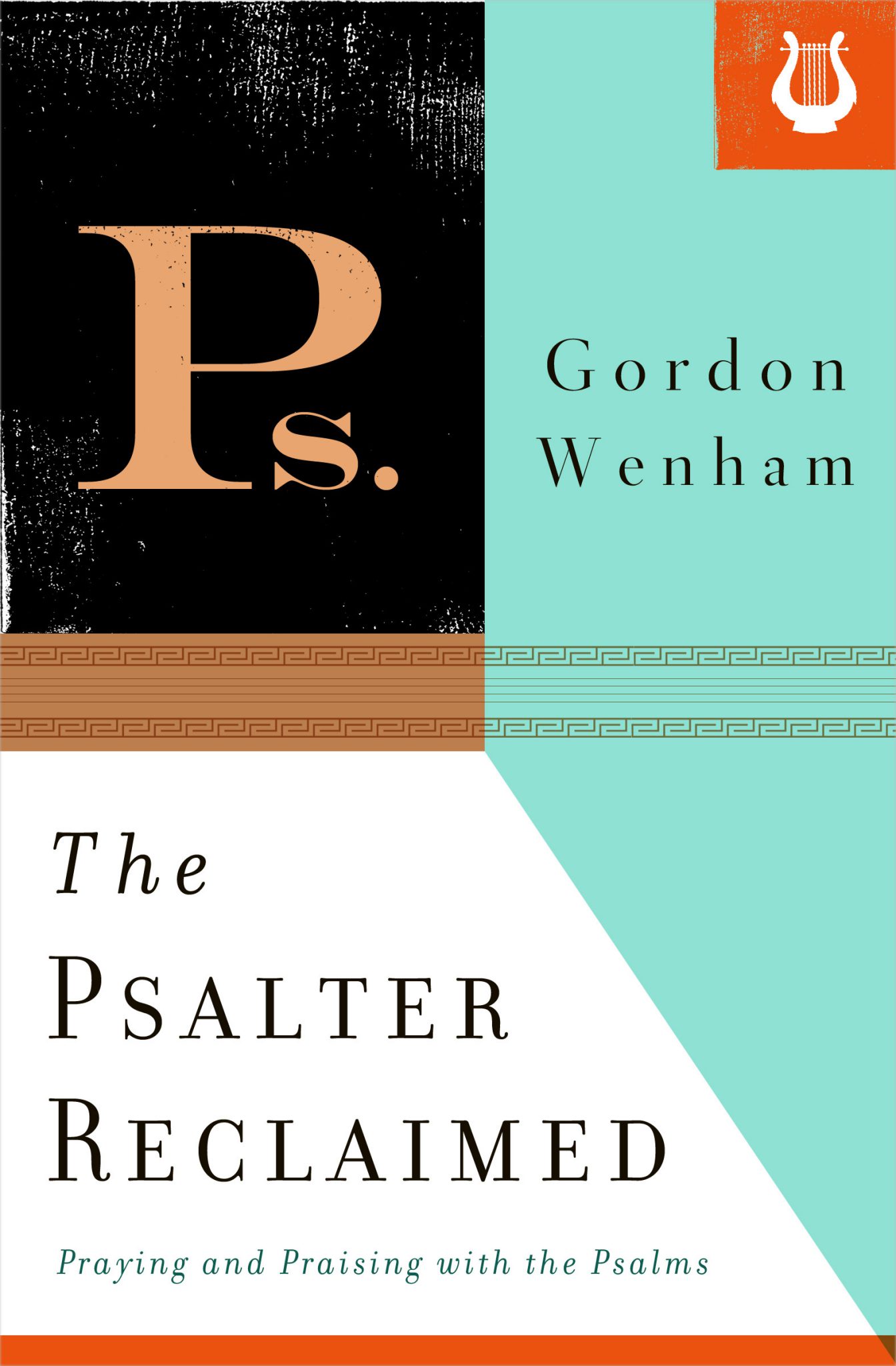Three years ago, on the recommendation of a friend, I spent several hours listening to a series of lectures Gordon Wenham’s delivered at Southern Seminary in Louisville, Kentucky. I was glad I did. Wenham’s lectures opened fresh and exciting ways to read the Psalter. Wenham’s emphasis on interpreting the psalms canonically (that is, with attention to their final form in the Hebrew Bible) is biblically-theologically rich and deserves careful consideration by scholars and pastors alike.
The first two chapters of The Psalter Reclaimed: Praying and Praising with the Psalms discuss the psalms in Christian worship. In chapter 1 Wenham, adjunct professor at Trinity College in Bristol, answers the question, “What are we doing singing the psalms?” After a brief overview of the liturgical effect of the psalms in church history, Wenham applies recent insights from speech-act theory to argue that congregational psalm reading and singing is a public way for the gathered church to commit itself to God. The psalms as speech-acts do more than just teach. People can ignore the point of biblical narratives and laws, but they cannot escape the force of a psalm when they must sing or recite it before God. Wenham explains that “when you pray a psalm, you are describing the actions you will take and what you will avoid. It is more like taking an oath or making a vow” (27). Chapter 2 moves from praise to prayer, as Wenham explains the value of praying through the psalms. They give God’s people the vocabulary of prayer. They show us how to praise, how to lament, and how to repent in ways that honor God.
Chapter 3 explores reading the Psalter canonically. A canonical reading of the Psalter recognizes there’s a specific and intentional order to the final form of the Psalter, an order that should influence the way we read each individual psalm. Interpreters, then, should “read one psalm in the context of the whole collection and, in particular, in relationship to its near neighbors” (77). In some sense the Psalter itself is a storyline moving from the record of the historical David (Books 1 and 2) through the period of exile (Book 3) to the hope of a new David who will bring the restoration of Israel from the nations (Books 4 and 5). Additionally, Wenham investigates the implications of canonical interpretation for the Messianic psalms.

The Psalter Reclaimed: Praying and Praising with the Psalms
Gordon Wenham
The Psalter Reclaimed: Praying and Praising with the Psalms
Gordon Wenham
Chapter 5 looks at the ethics of the psalms. Wenham posits that the Psalter essentially supports the principles of the Decalogue and also exalts “steadfast love” (Hebrew: hesed) as “an epitome of Psalmic Virtue” (123). Chapter 6 then examines the “problem” of the imprecatory psalms and how they ought to function in a Christian’s life and worship. In chapter 7 Wenham reflects on Psalm 103, modeling the type of canonical reading he advocates throughout the book. Wenham concludes by unpacking the theological role of the nations in the Psalter.
More, Please!
While The Psalter Reclaimed is a wonderful book overall, it does contain one major oversight. In his chapter devoted to explaining canonical reading, Wenham interacts at length with scholars who have also proposed the psalms ought to be read canonically, and he traces the history of canonical interpretation in recent scholarship. But while his analysis is top-notch, Wenham never sets out his own understanding of the Psalter’s canonical structure in any detail—something I was eagerly waiting for him to do.
Of course, this omission should not discourage anyone from reading the The Psalter Reclaimed. Wenham’s emphasis on canonical reading is needed, and his desire to integrate the Psalter with the biblical-theological storyline and Old Testament messianic expectations is refreshing. Further, pastors wondering how a canonical reading of the psalms should shape their preaching of an individual psalm will find Wenham’s chapter on Psalm 103 to be a wonderful example.
The Psalter Reclaimed also helpfully challenges its readers to more seriously consider the role the psalms ought to play in public worship. For that reason, Wenham’s work deserves a hearing among pastors and church leaders. He argues, for example, that “by praying the psalms those who have no problems and difficulties in their lives can learn to sympathize with those in trouble and pray for those who are suffering and persecuted” (47). Praying and praising with the psalms can give American Christians more solidarity with and sympathy for the persecuted church. Thus the psalms, particularly imprecatory and lament psalms, can help us escape our unhealthy tendencies toward parochialism.
Moreover, readers troubled by the imprecatory psalms will find Wenham’s chapter on that subject an enormous help. Relying on the works of Erich Zenger and Clinton McCann, Wenham posits that the imprecatory psalms are the heart-cry of the unjustly afflicted. He observes:
These cries for help are not about minor conflicts that could be resolved by greater generosity on the part of the one praying or by the exercise of love of neighbor. Rather those who pray these psalms are crying out about the injustice they suffer and are protesting about the arrogance of the violent. They are impelled by the contradiction posed by the mystery of evil and the presence of evil people in a world supposedly in God’s care. This is not a trivial or selfish complaint: They are protesting not just because they are being hurt, but because God’s justice, goodness, and power are at stake. (139)
This book is a delight. I began it expecting an enlightening study of the themes and theology of the Psalter, and I wasn’t disappointed. In fact, Wenham offers readers even more than they may expect. The Psalter Reclaimed will not just provide fresh insights into the psalms; it will also make you love them, long for them, even worship through them.



































